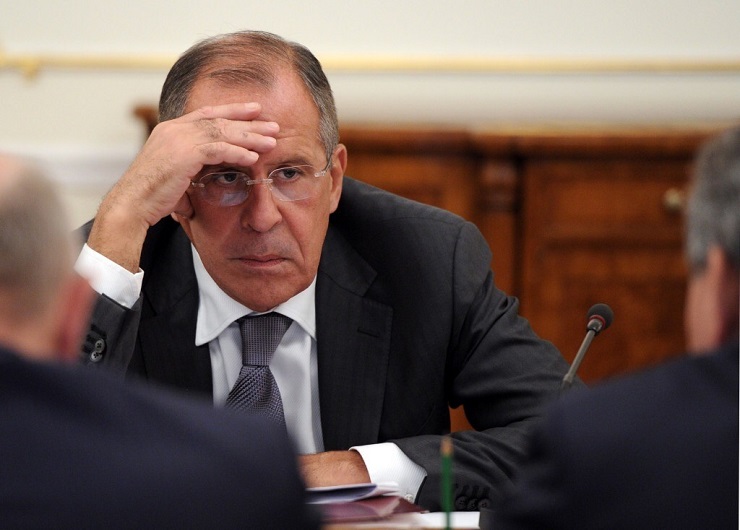Russian Foreign Minister Sergey Lavrov was in meetings recently with the Executive Secretary of the Intergovernmental Authority on Development (IGAD) Workneh Gebeyehu. In a followup to the Russia-Africa summit held back in October 2019 in Sochi, the two discussed the decisions of the first Russia-Africa summit, with an added focus on expanded cooperation with African integration organizations. TASS cited Mr. Lavrov so:
“Special focus was paid to the development of cooperation between Russia and IGAD in the humanitarian sphere and the sphere of education, the aid to African states in the fight against the novel coronavirus pandemic and overcoming the consequences of locust swarms in East Africa.”
Despite the Russian foreign minister’s straightforward efforts and intentions to grow positive policy in Africa, the western world order busies itself proclaiming everything but good business from Russia. Here are some interesting cases for how bilateral geopolicy from Russia is translated at think tanks and media outlets. Here’s what the detractors had to say Russia’s “real” aims in engaging African officials.
A good example is this story at Oil Price that claims Russia and China are perpetrating a “nuclear takeover” of Africa. The story by Haley Zaremba, who’s an environmentalist. Oil Price thinks an Egyptian nuclear power capacity is unnecessary, but the country cannot grow its power grid on hydropower developed decades ago. Another good reason an energy publication might think this is that Egypt is currently a net oil importer even though the country produces a heck of a lot of crude. Put bluntly, nuclear power capacity in Egypt will erode energy (oil/natural gas) imports and consumption.
The Royal United Services Institute for Defense and Security Studies (RUSI) clumps every Russia move in Africa up into a Cold War redux of Soviet-like expansionism ball. In his report, “Russia Takes its Syrian Model of Counterinsurgency to Africa,” Samuel Ramani claims Russia has a strategy of selling counterinsurgency strategy to African nations with “fragile authoritarian regimes.” The author goes on to say Russia’s ambitions in Africa hinge on Syrian this model. So much for what Whitehall and the UK leadership want the people there to believe.
Over in France, once the biggest roleplayer in Colonial Africa, the French Institute of International Relations published a study that contends that the reason more and more African nations are turning to Moscow is to leverage western nations. Not only does the French study claim Russia’s efforts are weak, but the report also says Russia supplies 49% of the military equipment sold on the continent. Nowhere in the study does it mention where the other 51% comes from. Of course, France still has her colonial designs on Africa, like always.
Finally, the European Union Institute for Security Studies (EUISS) just published “RUSSIAN FUTURES 2030: The shape of things to come” with a few scenarios for what’s after Vladimir Putin. Basically, the deep dark study rehashes west-east crisis as usual, claiming that whoever leads Russia after Putin will seek to take advantage of a weakened “liberal world order.” The dumb-tank thinking going on in the EU is just funny if you read it. According to one “expert”, the underlying, seething, discontent in Russia may soon explode. Yes, anytime you read a western think tank’s dogma, the wishful thinking and Putin hate just pours out. EUISS makes use of Carnegie Institute fellow Tatiana Stanovaya, who earns a living blowing her horn for Russian discontents like Mikhail Khodorkovsky. Yes, the Yukos Oil mafioso has his fingerprints on anything anti-Putin. But most readers are as tired of reading about Khodorkovsky, Browder, and the rest as I am of finding them mixed up in all the Russophobia.
The problem the western world order is having is an easily understandable one. I expect the Romans had a similar attitude once the empire started to crumble. Mr. Lavrov put it best recently in an interview where he was asked about Russia and China playing by western rules:
“It is time to stop applying Western metrics to our actions and stop trying to be liked by the West at any cost.”
And there you have the new Russia policy. For some time the Kremlin has ceased trying to alter the false narrative coming out of the US State Department and NATO headquarters. The Russians seem set on a course of action rather than words these days. And if Americans, Brits, and European Union nations prefer to take note of security agreements rather than COVID-19 help or energy projects, Russia and Africa are probably the better for it. The former colonists of Africa will probably lose sight of other investments.
Phil Butler, is a policy investigator and analyst, a political scientist and expert on Eastern Europe, he’s an author of the recent bestseller “Putin’s Praetorians” and other books. He writes exclusively for the online magazine “New Eastern Outlook.”

